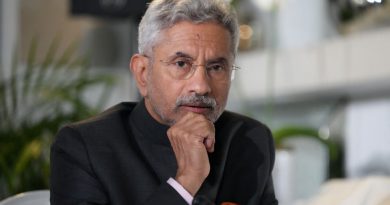Entrepreneurship lessons to be introduced in Delhi Govt Schools under Kejriwal Administration
by Aneesha Bedi
The curriculum will focus on imparting the personality and character traits of successful entrepreneurs, other than the business aspects of entrepreneurship.
Come 1 July, seven lakh students of classes 9 to 12 in Delhi government-run schools will be introduced to a new lesson — the Entrepreneurship Mindset Curriculum, which will help them “think big and new”.
Delhi government officials told ThePrint that the curriculum will be introduced across 1,024 schools, as a compulsory non-graded subject, comprising of a daily 40-minute class.
Students will be given Rs 1,000 each as ‘seed money’ to enable them to develop an entrepreneurial mindset, and will get to keep it if their ideas grow into a money-making business.
Deputy CM Manish Sisodia, who oversees the education portfolio and whose brainchild this project is, told ThePrint: “This will open up multiple new possibilities for students in Delhi government schools, as they explore various options and choose their profession.”
In a video released by the AAP, Sisodia explained the overarching thought behind the curriculum: “It will be nice to see some of these students perhaps make unconventional choices even after school. It will invariably bring about a paradigm shift in the education system wherein they could be job providers instead of just getting jobs.”
A pilot project was carried out across 24 schools in Delhi from 1 April to 10 May to gather feedback. Seventy-six classroom observers and 480 teachers were provided training, and 965 observations were made about the pilot project, with the government receiving 371 feedback forms from teachers.
At present, around 3,000 teachers per day are undergoing a rigorous week-long training programme to gear up for the Monday launch.
Holistic development
The new curriculum is being introduced a year after the AAP government introduced a Happiness Curriculum for students of classes 6 to 8, and four months after the State Council of Educational Research and Training approved the framework.
The framework was finalised by a 40-member committee comprising SCERT teachers, NCERT teachers working on entrepreneurship, teachers from prominent private schools and several experts in the field of education. Sixteen core members have been working on the curriculum since January, including the SCERT director Sunita Kaushika, project director Sapna Yadav, educationist and skilling and entrepreneurship expert Abhishek Gupta, and chief minister’s urban leaders fellow Gayatree Anand.
“The thought was that now that a child has achieved that ‘happy’ stage, he or she would be able to look at things in a more holistic manner and develop an entrepreneurial mindset. Hence, we chose classes 9 and upwards for this,” a member of the committee said.
What it entails
The Delhi government will provide seed money (Rs 1,000 each) to school students to “inspire them through various entrepreneurial stories, case studies and many mindfulness activities and approaches”, said Abhishek Gupta, committee member and adviser to Deputy CM Sisodia.
“If students make money of the business they start out of this Rs 1,000, they get to keep that money. If they lose money, the government will underwrite it,” Gupta told ThePrint.
Of its budget for 2019-20, the Delhi government has allocated around Rs 40-50 crore to execute the project.
The curriculum will focus on imparting the personality and character traits of successful entrepreneurs, other than the business aspects of entrepreneurship. While students will not have specific books, the teachers’ manual has 15 chapters or units including ‘Dream Big’, ‘Recognise Opportunity’, planning, listening, collaboration, ‘Bounce Back From Failures’, etc.
While the manual for classes 9 and 10 is same, there is another one for classes 11 and 12. The manuals were developed after taking feedback from teachers and students in the pilot project.
Key concerns and challenges
Given that it is a non-graded subject, it will not be easy to get students to pay attention to it. Project director Sapna Yadav, therefore, said there would be one-on-one training for the teachers in August, since they will have to act as facilitators to keep the students involved and motivated.
“Also, one of the major issues we faced was the larger classrooms. With a minimum of 40 students per class, it won’t be easy to draw attention to a curriculum where individual training is key. This is something the pilot project made us realise. But we are working on it,” Yadav said.
The report on the pilot project, accessed by ThePrint, also pointed out that substitute teachers need to be trained, and that teachers wanted schools to be given flexibility to decide the period in which these classes should be held.
Article first published The Print.



